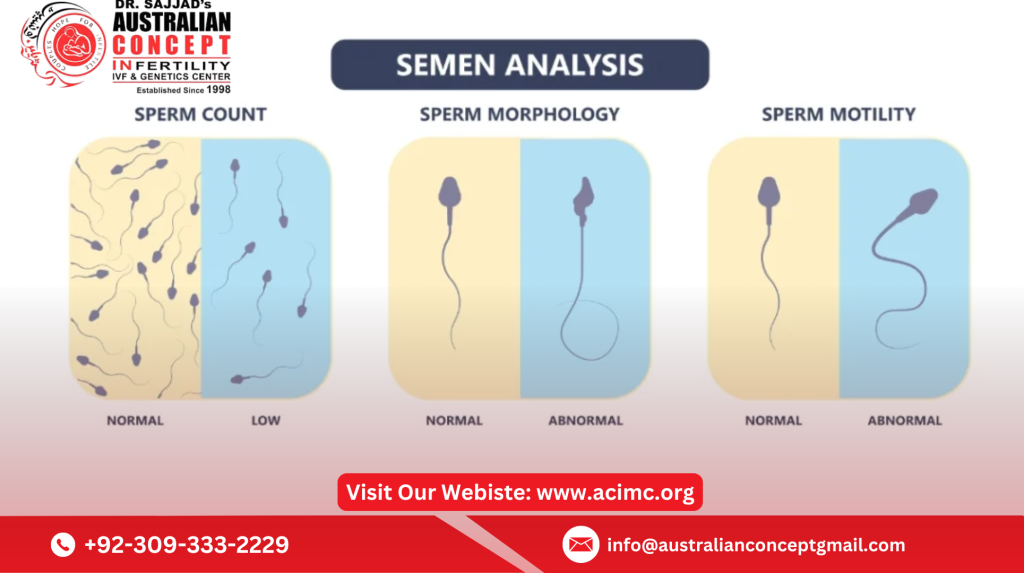Azoospermia, the medical condition characterized by the complete absence of sperm in a man’s semen, is a common cause of male infertility. It can be emotionally challenging for couples trying to conceive, but with the right treatment, azoospermia is often manageable.
The answer is yes lifestyle factors can significantly influence sperm production and overall reproductive health. Even if medical treatments such as surgery, hormone therapy, or assisted reproductive techniques (ART) like sperm retrieval and IVF are necessary, making the right lifestyle changes can improve treatment outcomes and support sperm health.
What is Azoospermia?
Before diving into lifestyle changes, it’s important to understand azoospermia and its potential causes. Azoospermia is typically categorized into two types:
- Obstructive Azoospermia (OA): This occurs when there is a blockage or obstruction in the male reproductive tract, preventing sperm from being released during ejaculation. Conditions like vasectomy, congenital abnormalities, or infections can cause OA.
- Non-Obstructive Azoospermia (NOA): This type is due to a failure in sperm production by the testes, which may result from genetic factors, hormonal imbalances, infections, or lifestyle factors such as excessive alcohol consumption or exposure to toxins.
Both forms of azoospermia require different treatment approaches, but lifestyle modifications can aid in improving sperm quality and overall reproductive health, regardless of the type.
Lifestyle Changes to Support Azoospermia Treatment
1. Maintain a Healthy Diet
Nutrition plays a vital role in supporting overall health, and that includes sperm production. A balanced, nutrient-rich diet can help improve hormone levels, reduce inflammation, and increase fertility.
- Key Nutrients for Sperm Health:
- Zinc: Essential for healthy sperm production. Foods like lean meats, shellfish, beans, and nuts are rich in zinc.
- Vitamin C and E: Antioxidants that help protect sperm from oxidative damage. Citrus fruits, strawberries, broccoli, spinach, and nuts are great sources.
- Omega-3 Fatty Acids: Found in fish like salmon, mackerel, and walnuts, omega-3s help improve sperm motility and overall sperm health.
- Folic Acid: Often paired with zinc for improved sperm quality. Green leafy vegetables, beans, and fortified grains are excellent sources.
- Coenzyme Q10: An antioxidant that has been shown to improve sperm count and motility. It can be found in organ meats, fatty fish, and supplements.
In addition to eating a well-rounded diet, it’s also important to avoid excessive intake of processed foods, trans fats, and sugar, as these can negatively impact hormonal balance and sperm production.
2. Exercise Regularly, but Don’t Overdo It
Physical activity can enhance overall health, reduce stress, and improve circulation, which may, in turn, improve sperm production. Moderate exercise, such as walking, cycling, or swimming, can help maintain a healthy weight and reduce the risk of other health problems that could contribute to azoospermia, like diabetes or obesity.
However, it’s important to avoid excessive or intense exercise, such as long-distance running or weightlifting, which can increase stress hormones like cortisol and potentially lower testosterone levels. Extreme exercise can also lead to a decrease in sperm count and quality. Strive for a balance: aim for 150 minutes of moderate exercise per week, and avoid overtraining.
3. Manage Stress
Stress is known to have a detrimental effect on fertility. Chronic stress can lead to hormonal imbalances, which may impact sperm production, especially in cases of non-obstructive azoospermia (NOA). High levels of stress may also reduce libido and affect the overall quality of life.
To manage stress effectively, try incorporating the following techniques into your routine:
- Mindfulness and Meditation: Practices like mindfulness meditation or deep breathing exercises can help lower stress and promote relaxation.
- Yoga: Gentle yoga can improve flexibility, reduce anxiety, and improve circulation, all of which contribute to better sperm health.
- Regular Sleep Patterns: Getting enough rest is essential for hormone regulation. Aim for 7-9 hours of quality sleep each night.
Additionally, if work, family life, or other pressures are contributing to stress, consider speaking to a counselor or therapist. Cognitive behavioral therapy (CBT) can help manage anxiety and stress in a healthy way.
4. Limit Exposure to Environmental Toxins
Environmental toxins, chemicals, and pollutants can have a negative impact on sperm health and fertility. Certain substances can disrupt hormone levels, lower sperm production, or impair sperm motility. Avoiding or minimizing exposure to these substances is an important step in supporting azoospermia treatment.
- Heavy Metals: Exposure to lead, mercury, or cadmium can reduce sperm count and motility. Avoid contact with heavy metals found in industrial settings, contaminated water, or polluted air.
- Pesticides and Herbicides: These chemicals can have endocrine-disrupting effects, leading to low sperm count. Choose organic food when possible, and avoid handling pesticides without protective gear.
- Phthalates and BPA: Commonly found in plastics, these chemicals can reduce sperm count and function. To minimize exposure, use glass or stainless steel containers instead of plastic, and avoid microwaving food in plastic containers.
By minimizing exposure to these harmful chemicals, you can help support the sperm production process.
5. Avoid Heat Exposure to the Testicles
The temperature of the testicles is crucial for sperm production, and prolonged exposure to heat can lower sperm count. Activities or environments that raise scrotal temperature, such as hot tubs, saunas, or even prolonged laptop use on your lap, can negatively impact sperm health.
- Wear Loose-Fitting Underwear: Tight-fitting underwear, such as briefs, can increase scrotal temperature. Opt for boxers or loose-fitting clothing to keep the testicles cool.
- Avoid Hot Baths or Saunas: Excessive heat can lead to reduced sperm production, so limit time spent in hot baths, saunas, or spas.
- Laptop Use: If you need to use a laptop, avoid placing it directly on your lap. Use a desk or a cooling pad designed for laptops to prevent overheating of the testicles.
6. Limit or Avoid Alcohol and Smoking
Both alcohol and cigarette smoking have been shown to negatively impact sperm health. Alcohol can reduce testosterone levels and impair sperm motility, while smoking introduces harmful toxins into the body that can damage sperm DNA.
- Alcohol: Limiting alcohol intake to moderate levels or avoiding it altogether is recommended. The World Health Organization (WHO) defines moderate alcohol consumption as two drinks or fewer per day.
- Smoking: Smoking reduces sperm count and motility and increases the risk of sperm DNA fragmentation. If you smoke, quitting is one of the best things you can do for your fertility and overall health.
By reducing or eliminating alcohol and tobacco, you can significantly improve your chances of successful azoospermia treatment.
Conclusion:
Azoospermia may feel like an insurmountable challenge, but lifestyle changes can play a pivotal role in supporting treatment and improving outcomes. Whether you are undergoing medical procedures like sperm retrieval, hormone therapy, or assisted reproductive technologies (ART), making the right adjustments to your diet, exercise routine, stress levels, and environmental exposures can significantly improve sperm production and fertility.
By focusing on balanced nutrition, regular but moderate exercise, stress management, avoiding toxins, and eliminating harmful habits like smoking and excessive alcohol consumption, men can enhance the success of azoospermia treatment and optimize their chances of fatherhood.
For More Details: https://acimc.org/ivf-lahore/








